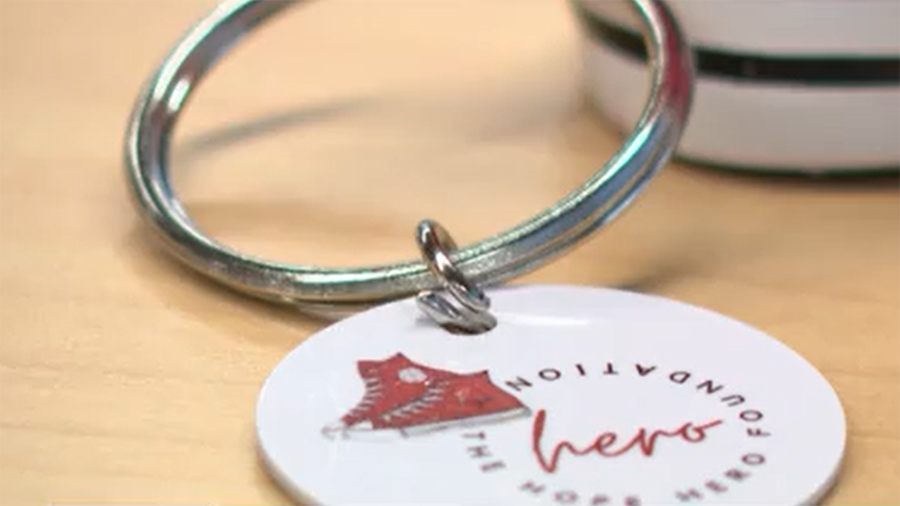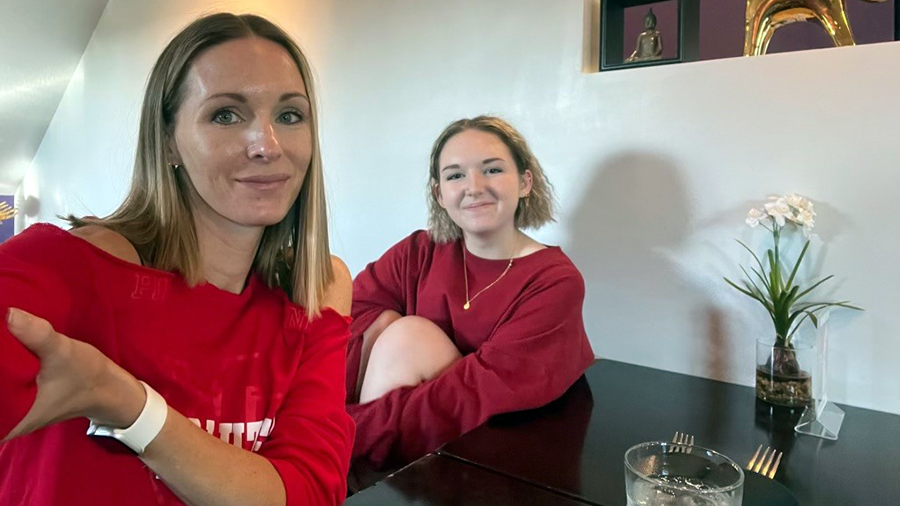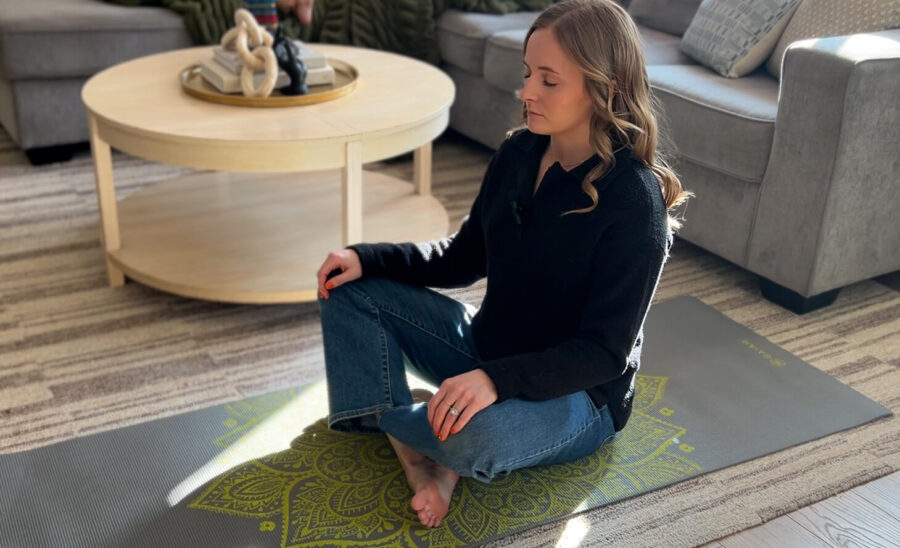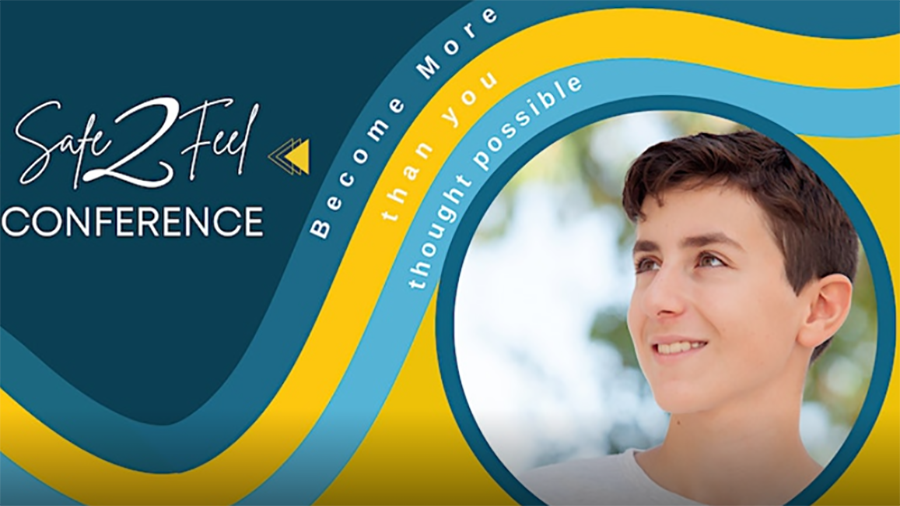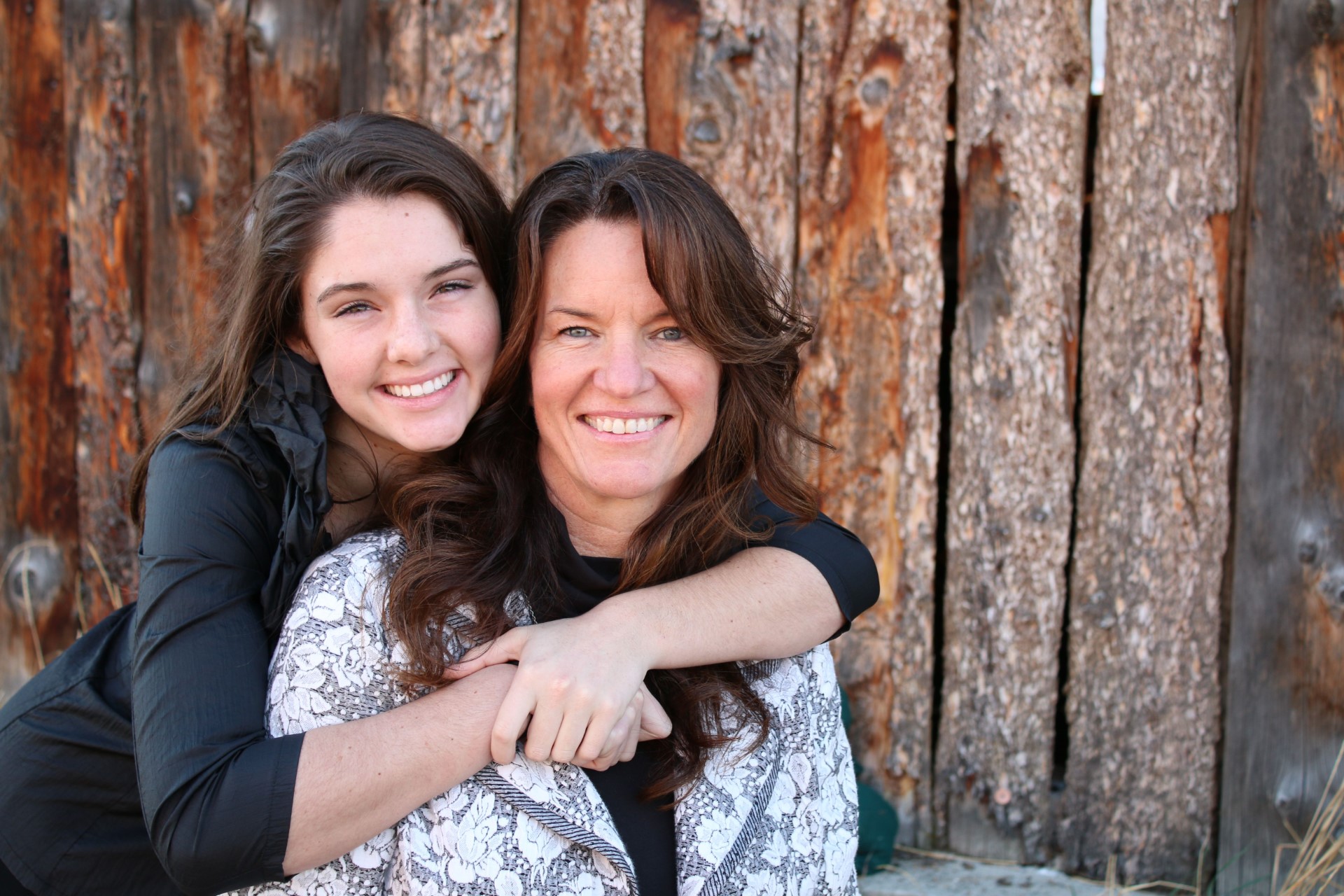How Utah Is Preparing To Meet The Mental Health Demands Of COVID-19
Apr 6, 2020, 10:11 PM | Updated: Apr 7, 2020, 8:36 pm
SALT LAKE CITY, Utah — No matter someone’s circumstances in the wake of the COVID-19 pandemic, it’s likely most Utahns are concerned about their finances and family’s health. Although the Beehive state consistently ranks among the top ten for suicide, Utah has never before experienced so much critical need for mental health resources.
Yet most peer support groups and even therapists have been forced to close their doors to help flatten the curve of the coronavirus.
So, is Utah doing enough to prepare for the inevitable rise in mental health concerns sparked by the worldwide pandemic? The KSL Investigators discovered the state is taking steps to prepare for the anticipated need.
After seeing demand for mental health resources skyrocket in other states hit hard by COVID-19, Utah healthcare leaders said they are confident the existing systems in place are set-up to meet a potential rise in demand and are taking proactive measures to accommodate those changes in the coming weeks.
But Utahns should be prepared that much of that access has shifted online.
Feeling Anxious For The First Time
Brigham City mother Kortnee Miner is among those feeling additional anxiety and emotional stress as a result of COVID-19.

A few weeks ago, Kortnee Miner experienced intense feelings of panic as a result of COVID-19 and reached out to a text crisis line for help.
She recently experienced a severe panic attack brought on by concerns about finances, her husband’s job, not having daycare for her young son and apprehensions about the pandemic.
“My mind was going 100 miles an hour. I could not focus on anything. I was thinking about everything at the same time,” she said.
Miner said she found herself at an all-time low while sitting in the car with her son.
“I couldn’t drive, I couldn’t do [any]thing,” she recalled. “It’s just rapid-fire – you start worrying about anything and everything.”
Miner then texted a crisis line for the first time.
“I was terrified to do it, but it had to be done. I had to talk to somebody,” she said. “They just talk to you until you get to a point where you’re actually feeling safe.”
Miner said it made all the difference.
“I actually had somebody I could talk to and get it off my chest and it gave me something to focus on, to direct that energy towards something else,” she explained.
Miner said she is taking each day one step at a time.
“That’s literally all you can do is one step at a time. Don’t think too far ahead. Just think about what you are going to do next,” she encouraged.
Lessons From New York
Miner is far from alone. People all over the world are seeking out mental health resources for the first time.
In New York City, home to the most confirmed COVID-19 cases in the U.S., the local National Alliance on Mental Health hotline has seen calls increase by about 60 percent.
Governor Andrew Cuomo quickly took action. He helped New York become the first state to create a mental health hotline to help with the emotional stress of the coronavirus.
“Don’t underestimate the emotional trauma that people are feeling,” Cuomo acknowledged during a briefing on March 25 in Albany, New York. “We asked for mental health professionals to voluntarily sign up to provide online mental health services.”
Following his call to action, more than 6,000 trained psychologists and psychiatrists offered their professional skills to listen, support and refer people to therapy if needed, for free. There are now more than 10,000 volunteers who currently staff the NY COVID-19 Emotional Support Helpline.
Texas and Louisiana have also since followed suit and set-up dedicated coronavirus mental health hotline.
Wedding Planning During A Global Pandemic
Laura Babbel and her fiancé, Brayden Carpenter, are both students at Brigham Young University. As if moving back to their hometown of Wichita Falls, Texas, amid the COVID-19 pandemic in order to complete the semester virtually wasn’t stressful enough, the couple was also dealing with the possibility of having to change their wedding plans significantly, or postpone it altogether.
“Will I have to reschedule everything? Will I lose money? Will I not be able to get my date if I have to reschedule?” Babbel asked.
The couple – who grew up together and began dating as teenagers – was supposed to get married on June 13 at the Payson Temple of The Church of Jesus Christ of Latter-day Saints. The temple was always the students’ decided venue.
“All the temples are closed. For how long? I don’t know,” Babbel said.
Laura struggled with anxiety before the pandemic began. Now, with so many added stressors, her anxiety has heightened.
“Everything’s kind of up in the air and we’re kind of unsure of what’s going to happen,” Babbel said. “Everything is just changed and that freaks me out because I don’t know what’s going to happen. Just the uncertainty of everything gives me anxiety.”
However, she said her wedding is the least stressful item on her plate right now.
Her fiancé understands the stress, too.
“There’s a lot of important things that I was going to do during this summer. I want to go to medical school. So, I wanted to get shadowing time and go to hospitals. I can’t do that,” Carpenter said. “I have to pay for school next semester. I need a job in order to pay for that, but there’s no jobs open right now.”
All things considered, Carpenter said he understands the big picture.
“People’s health is definitely more important than that. Making sure that people have good, healthy lives is more important than those little concerns,” he said.
Although they still haven’t decided how they’ll move forward with wedding planning, the couple said they’re focused on prioritizing public safety and their mental health and stability.
“People need to pay attention to their mental health because more than ever it’s going to be an issue,” Babbel added. “At this point, I honestly can say I have no idea what we’re going to do. We’re just taking it day by day.”
“I tell her every day everything is going to be okay. No matter what, we’re going to get married and no matter what we’re going to get married in the temple. It’s a matter of when,” Carpenter said. “I think we’ll be okay. We’re going to be alright.”
Utah’s Crisis System Response Plan
KSL Investigators took the lessons from New York’s proactive response to Utah leaders to see how they are prepared to respond to rising demand for mental health needs.
Rachel Lucynski oversees much of the state’s mental health response. She is the business operations manager with the University Neuropsychiatric Institute’s Crisis and Diversion Services. She believes Utah already has the necessary systems in place.
“I think Utah is well-equipped and well-prepared with our current statewide risk and crisis response system,” she said.
Despite social distancing orders, Lucynski said essential crisis response services are still operating and will continue to operate as the virus continues to spread.
Those services include Mobile Crisis Outreach Teams, also known as MCOT units, which are spread out across Utah, offering “mental health ambulance service” without sirens and flashing lights to people facing an immediate mental crisis. These units dispatch in Salt Lake, Davis, Weber and Utah counties and the southwest region of Utah, including St. George and surrounding cities.
The SafeUT app offers another resource to those in immediate distress. It is a real-time crisis intervention chat and tip app for students and adults alike, which connects people to licensed counselors who are ready to respond 24-7, from the Utah Neuropsychiatric Institute. The app allows users to text, call or submit tips anonymously.
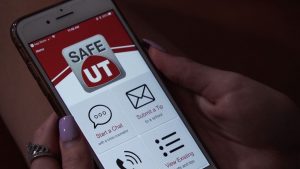
The SafeUT app provides real-time crisis intervention for people in immediate distress.
Additionally, the state offers support through well-established crisis prevention hotlines for people needing help. The Utah Statewide Crisis Line, in association with the National Suicide Prevention Lifeline, offers help to people who are facing an immediate crisis, and the Salt Lake County Warmline offers a safe space for those who could benefit from just having someone else to talk to.
Lucynski said Utahns are in good hands since the framework is already in place.
“It’s very important that people take their emotional mental well-being very seriously and reach out for support,” Lucyski said.
Last month, Utahns did just that. The state saw a spike in call volume to crisis hotlines. Though officials won’t release exact numbers, Lucynski said when national travel restrictions went into effect on March 3, crisis hotlines in Utah reported an 11% increase in calls.
On March 18, the day of a 5.7 magnitude earthquake in Magna, calls jumped 25%.
Lucynski said it’s likely just the beginning.
“We are anticipating an increase in calls, absolutely,” she said.
To gear up for that increase, more and more providers have begun offering telehealth services.
Kim Myers, Assistant Director with the Utah Division of Substance Abuse and Mental Health, believes it’s really important for people to know mental health services are considered essential services and are still up and running.
She said the number of community-based mental health practitioners contracted with their department that offer mental health services nearly doubled in March.
In just the past month, Utah went from having 350 providers offering online sessions to over 800. That number is still growing and does not include large private practices like Intermountain Healthcare and the University of Utah.
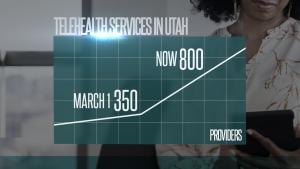
The Division of Substance Abuse and Mental Health reports the number of community providers offering telehealth services in Utah has more than doubled in March.
Virtual Therapy
Briah Riehle knows how important it is to take care of her mental health. She was diagnosed with bipolar, post-traumatic stress, and generalized anxiety disorders years ago.
“Viruses and people getting sick is something that has always kind of triggered my anxiety,” she said.
When this nightmare became a reality with the COVID-19 outbreak, her emotional stress increased. Then the coronavirus left her without work.
“I need to buy diapers for my daughter, and I need to be able to provide her with food,” Riehle said. “It’s just a lot of uncertainty and fear and just stress.”
Having just moved to Utah, Riehle reached out to the Department of Workforce Services and Odyssey House to find help. She set-up virtual therapy appointments through ZOOM with a new therapist for free.

Briah Riehle was diagnosed with bipolar, post-traumatic stress, and anxiety disorder. She is planning on started virtual therapy through the Odyssey House soon.
“That consistency for me is really important – being able to check-in and have somebody that stays on top of me basically,” she said. “I think there’s a lot of value and being able to sit down with somebody and have like one on one very private setting.”
While she was concerned having therapy appointments virtually in her own home won’t provide her the privacy she is used to at a therapist’s office, she was just grateful to have someone to talk with.
“I think it’s really cool that they haven’t just left people like me who need help to kind of fend for ourselves,” she said. “They’re still finding ways to work through everything to make sure that we are getting the help that we need.”
Saratoga Springs resident Lindsey Forbes was also nervous about trying virtual therapy.
Forbes, a wife and mother of two children, has an established rapport with her therapist.
Like many others, the pandemic has furthered Forbes’ worries for herself and her family. She said in the past few weeks, she’s felt grief, sadness, worry and anxiousness.
“It’s easy to feel helpless and that’s a scary feeling,” Forbes said.
She said not knowing when this pandemic will end is at the center of her concerns.
“There’s so much unknown about how this is all going to unfold: Where we’re going to end up, if my daughter’s going to be able to go back to school and finish first grade,” she said. “That, in and of itself, is anxiety-provoking.”
When her therapist offered temporary virtual therapy through the pandemic, Forbes was apprehensive to give it a try.
“I wasn’t sure if I was going to be able to connect in the way that I wanted to connect in a therapy session online,” she explained. “The thought of having a session online where I’m not actually in the room with that person had already kind of heightened my anxiety.”
But she knew she couldn’t afford to go without it. To Forbes’ surprise, she said the session went really well.
“I walked away feeling supported and more centered,” she said.
Forbes already set up a follow-up appointment. Had she foregone virtual therapy she said she wouldn’t have had the additional support to help her navigate the new challenges brought on by COVID-19, in addition to the things she was already working on.
In this process, Forbes said she learned “it’s also okay to continue to navigate your personal life in addition [to COVID-19] because that doesn’t just stop.”
Forbes urges people who need it, to give therapy a try.
“If you don’t have a therapist and feel like you could really benefit from talking to somebody, I would encourage them to find somebody they can connect with right now online,” she said.
Help Is One Phone Call Away
No matter where someone is on their mental health journey, Lucynski hopes people know they are not alone, and help is just one phone call away.
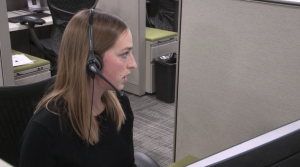
Utahns in immediate crisis can call the Utah Statewide Crisis Line and will be put in contact with a trained licensed crisis counselor to provide support.
“Even in these uncertain times, there is still hope,” she said.
If someone is unsure whether or not they should reach out for help, Lucynski tells people to just do it and they will be directed to the right services.
Resources:
- Utah Statewide Crisis Line, in association with the National Suicide Prevention Lifeline: 1-800-273-8255
- Call 24/7 to speak to a licensed crisis counselor if you or a loved one are having thoughts of suicide, are experiencing an emotional or mental health crisis, or are feeling overwhelmed and need support.
- Utah Warm Line: 801-587-1055
- Open 7-days a week, from 8 a.m. – 11 p.m. Call to speak with a certified peer support specialist.
- This service is for people who are not in crisis but seeking emotional support, engagement, or encouragement. Certified peer specialists offer support and empower callers to resolve problems by fostering a sense of hope, dignity, and self-respect.
- This is a great resource for people who are feeling stressed, overwhelmed, isolated, or like they just need someone to talk to.
- Mobile Crisis Outreach Teams (MCOT)
- Triaged and dispatched through the Utah Statewide CrisisLine by calling 1-800-273-8255, teams are available for dispatch in Salt Lake, Davis, Weber, and Utah counties, and the southwest region of Utah, including St. George and surrounding cities.
- Due to COVID-19, crisis counselors on the CrisisLine will ask health screening questions to determine if an in-person or telehealth response is most beneficial. MCOT staff may wear the CDC’s recommended universal precautions to include goggles, masks, gloves, and gowns to ensure the safety and wellbeing of our community and health care workforce.
- SafeUT (Crisis Chat and School Safety Tip app)
- The SafeUT Crisis Chat and Tip Line is a statewide service that provides real-time crisis intervention to youth (public K-12 and higher education) through live chat and a confidential tip program – right from your smartphone.
- Licensed crisis counselors are available 24/7 to respond to all incoming chats, tips, and calls by providing supportive or crisis counseling, suicide prevention, and referral services.
- Support is also available to parents and educators of students in public K-12 and higher education.
- Free and available for download from the Google Play Store and the App Store.
- SafeUTNG (Crisis Chat and Safety Tip app for Utah’s Army and Air National Guard service members, family members, and personnel)
- As an extension of SafeUT, the SafeUTNG app provides a safe and confidential platform to communicate with a licensed crisis counselor 24/7. Users can text, submit a tip, or call to receive support.
- The app is operated and managed by the University of Utah Neuropsychiatric Institute (UNI) in partnership with the Utah National Guard.
- Licensed mental health professionals can assist with a variety of issues including: emotional crisis, grief and loss, drug and alcohol issues, mental health issues, self-harm, suicide prevention, and safety concerns.
- Free and available for download from the Google Play Store and the App Store.
- Utah Coronavirus Information Line: 1-800-456-7707
- This Utah Coronavirus Information hotline is a central resource for the public’s questions about COVID-19 in Utah. Visit coronavirus.utah.gov for more information.
- Disaster Distress Helpline, operated by Substance Abuse and Mental Health Services Administration (SAMHSA): 1-800-985-5990
- A 24/7 national hotline dedicated to providing immediate crisis counseling for people seeking emotional help in the aftermath of a disaster (to include public health emergencies).
- People can also access services by texting TalkWithUs to 66746


